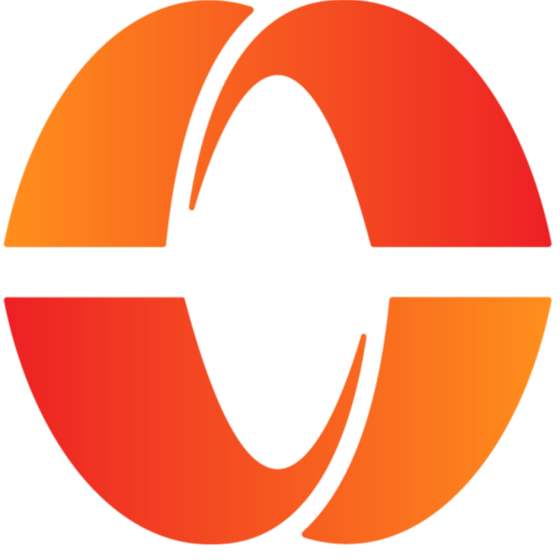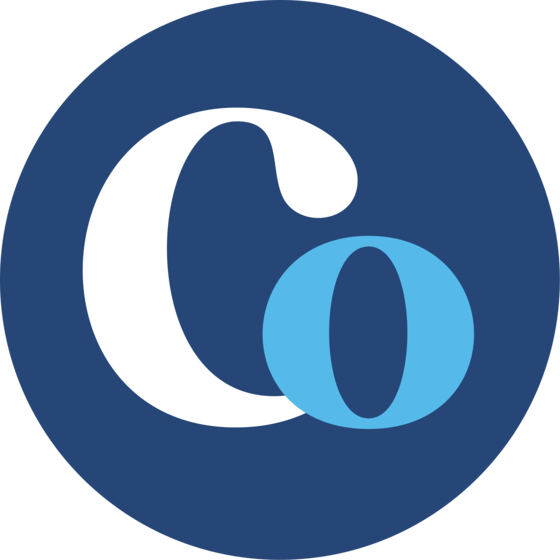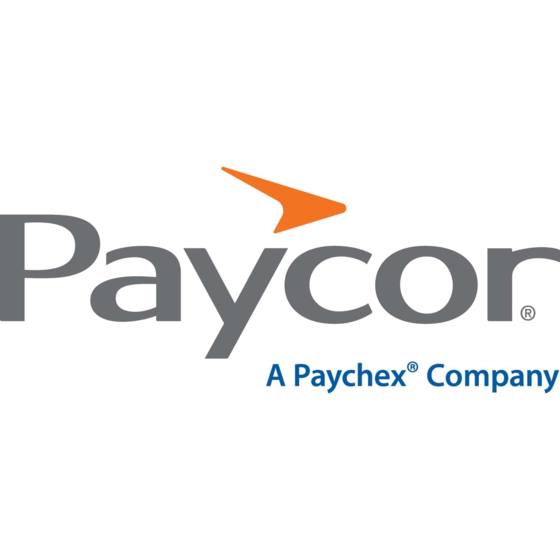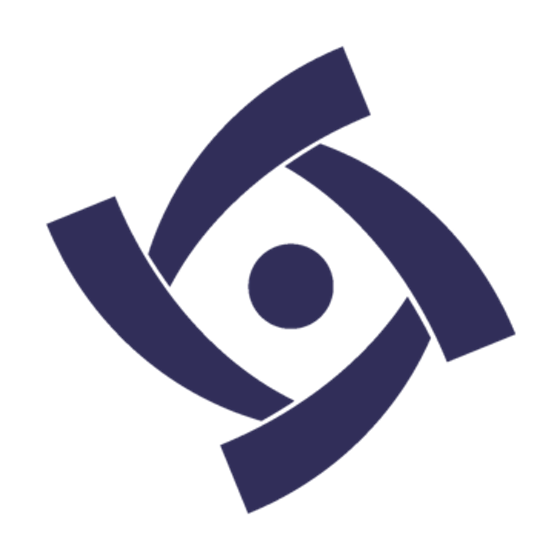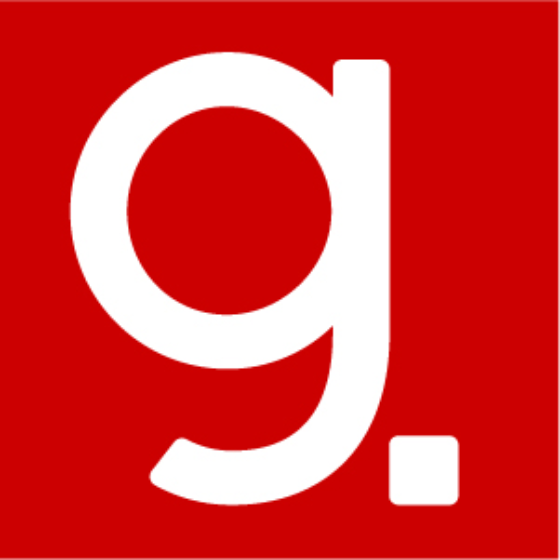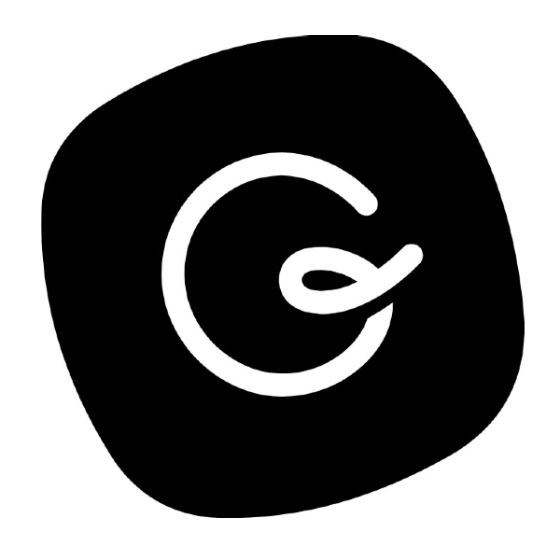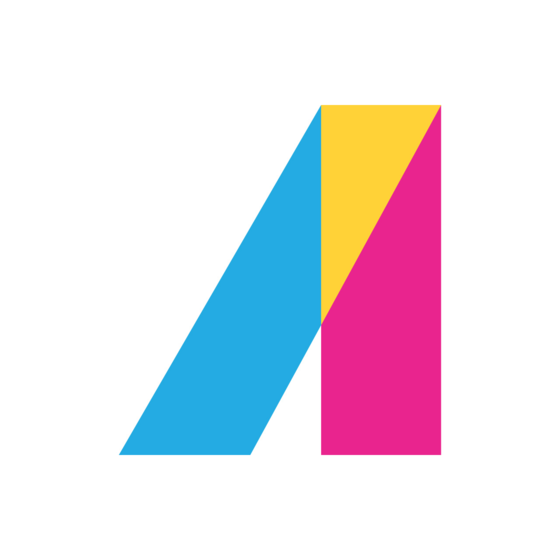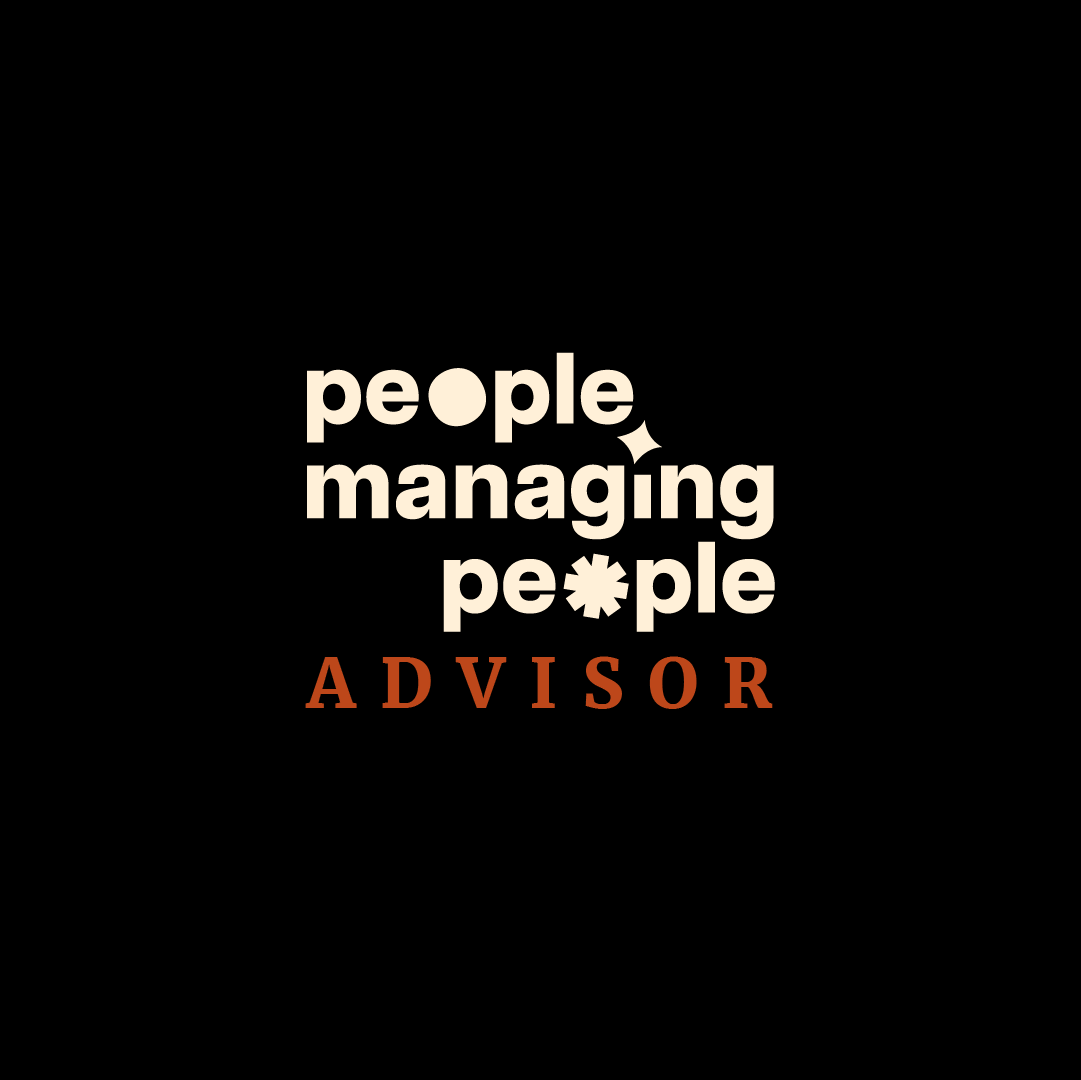Best AI HR Software Shortlist
Here's my pick of the 10 best software from the 20 tools reviewed.
Talk through what you’re looking for. Get a custom shortlist based on your needs. No fees.
Choosing the right AI HR software can be a daunting task. You're looking for a solution to simplify your HR processes, but the market is flooded with options. I understand the challenges you face, and I'm here to guide you through the selection process. Due to my extensive experience researching and testing different HR technologies, I've come across numerous HR systems with advanced AI-powered tools. In this article, I’ll walk you through my top recommendations for different use cases to help you find the best AI solutions for your HR needs.
In most cases, AI HR software offers the benefit of automating routine tasks and removing time-consuming administrative work, such as data entry, or other manual tasks. However, some AI HR systems go beyond these basic functionalities, acting like more of a virtual assistant for all your HR tasks and needs. To speed up your selection process, let me guide you through this trend-worthy topic to help you find the best AI software that meets your needs.
Why Trust Our HR Software Reviews
We’ve been testing and reviewing HR software since 2019. As HR professionals ourselves, we know how critical and difficult it is to make the right decision when selecting software.
We invest in deep research to help our audience make better software purchasing decisions. We’ve tested more than 2,000 tools for different HR use cases and written over 1,000 comprehensive software reviews. Learn how we stay transparent, and take a look at our software review methodology.
Best AI HR Software: Pricing Comparison Chart
This comparison chart summarizes pricing details for my top AI HR software selections to help you find the best software for your budget and business needs.
| Tool | Best For | Trial Info | Price | ||
|---|---|---|---|---|---|
| 1 | Best for global payroll and compliance | Free trial + demo available | From $29/month | Website | |
| 2 | Best for AI-powered HR automation | Free demo available | Pricing upon request | Website | |
| 3 | Best for talent management and recruitment | Free demo available | Pricing upon request | Website | |
| 4 | Best for predictive HR analytics | 30-day free trial | Pricing upon request | Website | |
| 5 | Best for employee relations management | Free demo available | Pricing upon request | Website | |
| 6 | Best for complex business compensation planning | Free plan available | Pricing upon request | Website | |
| 7 | Best for workforce planning | 30-day free trial | From $199/seat/month | Website | |
| 8 | Best for AI-powered training videos | Free plan available | From $16/user/month | Website | |
| 9 | Best for streamlined feedback processes | 7-day free trial | From $3.50/user/month (10 user minimum) | Website | |
| 10 | Best for autonomous HR resolution | Free demo available | Pricing upon request | Website |
-

ClearCompany
Visit WebsiteThis is an aggregated rating for this tool including ratings from Crozdesk users and ratings from other sites.4.6 -

Guru
Visit WebsiteThis is an aggregated rating for this tool including ratings from Crozdesk users and ratings from other sites.4.6 -

Absorb LMS
Visit WebsiteThis is an aggregated rating for this tool including ratings from Crozdesk users and ratings from other sites.4.6
Best AI HR Software Reviews
Here are my detailed summaries of the best AI-powered tools for HR teams that made it into my top 10 list, including notes on why I picked them. Each review offers a detailed look at the key features, pros & cons, integrations, and ideal use cases of each system to help you find the best tool for you.
Deel is an AI-powered HR software that caters to the growing demands of remote and international workforces. It offers a comprehensive platform that allows companies to manage payroll, compliance, and employee benefits seamlessly across over 150 countries.
Why I picked Deel: Deel stands out for its focus on global payroll and compliance. The platform's AI capabilities ensure that payroll processes are not only automated but also adhere to the diverse and intricate compliance requirements of different countries. This feature is particularly valuable for companies with a global presence, as it mitigates the risk of costly compliance errors and legal issues. Additionally, its Deel AI suite allows users to ask any workforce or team-related questions and receive an answer quickly.
Standout features and integrations:
Features include automated contract generation to ensure employment contracts are compliant with local laws and regulations, a comprehensive benefits management system that allows companies to offer competitive benefits packages tailored to different regions, and an employee self-service portal. It also offers detailed reporting and analytics tools.
Integrations include QuickBooks, Xero, BambooHR, Greenhouse, Workday, Lever, Gusto, Slack, and Expensify.
Pros and cons
Pros:
- Automated invoicing and payments
- Deel AI feature provides quick answers to users
- Simplifies international payroll and compliance
Cons:
- Limited customization options
- No mobile app
New Product Updates from Deel
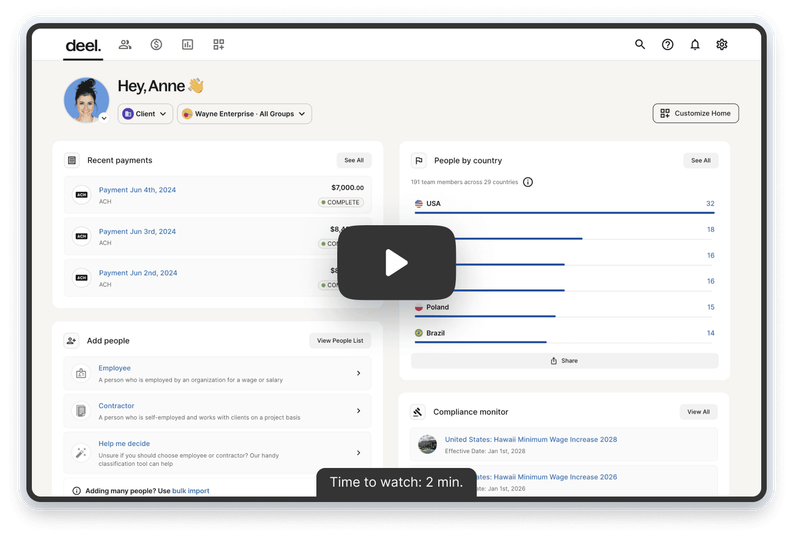
500+ New Platform Enhancements for Global Hiring and Payroll
Deel announced over 500 platform enhancements focusing on global hiring, HR, payroll, and AI-driven compliance, featuring tools for faster hiring, smarter HR management, strategic planning, and enhanced payroll flexibility. For more details, visit the source: Deel Blog.
Paylocity is an AI-powered HR and payroll platform that helps businesses streamline operations and make smarter workforce decisions. Its intelligent automation spans the entire employee lifecycle, from payroll and scheduling to recruitment and retention, embedding insights and efficiency into everyday workflows.
Why I picked Paylocity: I picked Paylocity because it weaves automation and intelligence into core HR functions, predicting staffing needs based on historical trends, auto-generating job descriptions, recommending market-aligned compensation, and flagging at-risk employees with actionable retention strategies. The platform also streamlines daily administration by drafting benefits announcements, suggesting personalized plan options, automating scheduling, and offering an AI-powered chat assistant that answers company-specific questions in real time.
Standout features and integrations:
Features include headcount forecasting, payroll, and AI-guided recruiting—all grounded in compliance and real-time data.
Integrations include BambooHR, Greenhouse, NetSuite, ADP, Oracle HCM, Workday, Salesforce, Microsoft Teams, HubSpot, Zendesk, Slack, and Microsoft SharePoint, allowing Paylocity to work seamlessly within your existing HR tech stack.
Pros and cons
Pros:
- Includes tax compliance services
- On demand payment options
- Tailored workflows and reports
Cons:
- Limited customization options in certain modules
- Setup can be time consuming
ClearCompany is a recruitment and talent management platform that offers an end-to-end solution for managing the entire employee lifecycle. It provides a comprehensive suite of tools designed to help organizations attract, hire, and retain top talent.
Why I picked ClearCompany: The platform utilizes AI to automate and optimize various tasks, such as resume parsing, candidate matching, and interview scheduling. These AI capabilities help reduce time-to-hire and improve the quality of hires by identifying the best-fit candidates efficiently. Additionally, ClearCompany's AI tools provide predictive analytics for performance management, offering actionable insights to support employee development and succession planning.
Standout features and integrations:
Features include comprehensive onboarding and performance management tools. The onboarding module automates tasks like compliance, administration, and equipment provisioning, while the performance management system facilitates continuous feedback, goal tracking, and performance reviews. Other notable features include employee surveys, peer recognition, and custom reporting.
Integrations include ADP Workforce Now, LinkedIn, Indeed, UKG Pro, Paylocity, Checkr, EZ Screen Solutions, Rectxt, Absorb LMS, CompetencyCore, Thomas International, The Predictive Index, and Proliant.
Pros and cons
Pros:
- AI-powered system for enhanced HR processes
- Access to a global talent pool
- Good onboarding and performance management capabilities
Cons:
- Reports could be more robust
- No mobile app available
Paycor is a human capital management (HCM) platform built for small to mid-sized businesses that want to modernize their HR and payroll operations. The platform uses artificial intelligence to simplify core HR tasks and support smarter hiring, onboarding, and compliance workflows.
Why I picked Paycor: I picked Paycor because it embeds AI into key areas of HR—especially where day-to-day decisions and administrative tasks pile up. Its intelligent sourcing tool, for instance, can automatically surface candidate matches and promote hiring diversity. Meanwhile, the platform’s predictive analytics help HR teams make more confident decisions around retention, compensation, and planning. I also liked that Paycor approaches AI with a human-centered lens. It emphasizes transparency and ethical use in areas like performance tracking and hiring, which is increasingly important for teams implementing AI in sensitive HR processes.
Standout features and integrations:
Features include an AI-powered HCM suite that automates common HR tasks like onboarding, performance tracking, and employee development. Paycor also offers embedded analytics to surface workforce trends and provides tools to support engagement initiatives like pulse surveys and recognition. It’s especially helpful for businesses looking to consolidate multiple HR tools into one platform.
Integrations include QuickBooks, Xero, SAP Concur, Indeed, LinkedIn, Glassdoor, Zapier, Microsoft Teams, Slack, and DocuSign.
Pros and cons
Pros:
- Wide range of integrations with popular tools
- Advanced employee performance tracking
- Industry-specific HR and payroll solutions
Cons:
- May require additional support for full customization
- UX can feel a bit clunky at times
HR Acuity is an AI-driven platform that helps you manage employee relations and workplace investigations. It offers tools to document, track, and analyze employee issues, aiming to create a fair and consistent work environment.
Why I picked HR Acuity: HR Acuity's AI, olivER, assists in identifying patterns and trends in employee relations data, helping you proactively address potential issues. This predictive approach allows for timely interventions, fostering a healthier workplace culture. Additionally, the platform offers a centralized repository for all case documentation, ensuring easy access and improved compliance. The platform includes built-in templates and best practices for conducting workplace investigations. These resources guide you through each step, promoting thorough and consistent investigations.
Standout features and integrations:
Features include employee workplace reporting, case management, workplace investigations, analytics, documentation, managER for people leaders, an ethics and compliance hotline, and an employee database.
Integrations include Workday, Oracle, ADP, Ultipro, other HRIS systems, and ComplianceLine. It also offers its REST-based API for integration with ticketing systems and compliance solutions.
Pros and cons
Pros:
- Robust reporting capabilities
- Centralized case documentation
- Offers benchmarking dashboards
Cons:
- Advanced features require time and training
- User interface could be more intuitive
Aeqium is a compensation planning software designed to help complex organizations manage and automate their compensation processes. It offers tools to customize compensation cycles, set clear pay ranges, and gain insights into team compensation.
Why I picked Aeqium: I picked Aeqium because of its AI-powered compensation formula writing, which helps your team make fair, data-driven salary decisions without relying on complex manual calculations. The tool also automates compensation cycles, eliminating spreadsheet chaos and saving time during merit reviews and salary adjustments. With no-code customization, you can also tailor the platform to fit your company’s specific pay structures, while gaining clear insights into salary, equity, and bonuses—all within a system built for compensation planning.
Standout features and integrations:
Features include compensation insights, which provide real-time data integration by syncing directly with your HRIS, ensuring up-to-date compensation data. This allows you to visualize team compensation, track historical changes, and identify pay equity gaps. Additionally, the employee portal offers employees complete insight into their salary, equity, bonuses, and benefits, enhancing transparency and engagement.
Integrations include ADP Workforce Now, BambooHR, Gusto, Justworks, Paylocity, Quickbooks, Run Powered by ADP, and DocuSign.
Pros and cons
Pros:
- Flexibility in configuring pay bands
- Customizable templates for offer letters
- Pay equity modeling tools
Cons:
- Limited HR analytics beyond compensation
- No built-in ATS or recruiting tie-ins
Agentnoon is an AI-driven HR software designed to enhance organizational design and workforce planning. It enables you to visualize your company's structure, create various workforce scenarios, and monitor analytics, all within a single platform.
Why I picked Agentnoon: I like its Intelligent Design tool that allows you to generate and compare multiple organizational scenarios effortlessly, helping you assess potential impacts before implementing changes. This proactive approach ensures that your team can make informed decisions, reducing the risk associated with structural adjustments. Another valuable aspect is Agentnoon's data diagnosis feature. It automatically identifies inconsistencies and errors within your HR data, ensuring that your workforce planning is based on accurate and reliable information.
Standout features and integrations:
Features include the ability to create detailed org charts that provide a clear visual representation of your company's hierarchy, making it easier to understand reporting lines and team structures. Additionally, Agentnoon's scenario merging function enables you to combine different planning scenarios, facilitating comprehensive analysis and decision-making.
Integrations include Workday, Oracle, SAP, UKG, Dayforce, and ADP.
Pros and cons
Pros:
- Facilitates effective communication among stakeholders
- Real-time analytics and KPI tracking
- Efficient drag-and-drop functionality for scenario planning
Cons:
- Potential challenges with manual integrations
- Limited customization options in certain areas
Guidde is an AI-powered platform that helps you create video documentation and how-to guides quickly. It uses generative AI to let anyone produce professional-looking videos without needing design or video skills.
Why I picked Guidde: When it comes to onboarding and training new employees, Guidde offers a unique platform that can record your screen and create how-to videos automatically. This makes it easy to document complex processes without spending a lot of time on manual editing. Additionally, its AI-generated voiceovers let you add natural-sounding narrations to your videos. With over 100 voices in various languages and accents, you can make your content more engaging and accessible to your diverse workforce, which is especially useful for creating training materials.
Standout features and integrations:
Features include text-to-voice capabilities, allowing you to convert written text into voiceovers and enhance the accessibility of your content. Additionally, you can blur sensitive information in your videos to protect privacy and ensure that confidential data isn't shared inadvertently.
Integrations include Salesforce, Google Drive, Microsoft OneDrive, Slack, Zoom, Zendesk, ServiceNow, Chrome, Notion, and Confluence.
Pros and cons
Pros:
- Multilanguage support
- Includes interactive elements and professional voiceovers
- Utilizes AI for automatic storyline creation
Cons:
- Doesn't offer HR functions beyond training and onboarding use cases
- Could offer more integrations
Effy is an AI-powered performance management tool that simplifies the feedback collection process for teams. It enables quick and efficient 360-degree reviews, leveraging AI to deliver insights in a user-friendly manner.
Why I picked Effy: I chose Effy for its ability to significantly reduce the time and complexity typically associated with 360 feedback processes. It offers a swift, straightforward approach to gathering and analyzing feedback, which is crucial for fostering a culture of continuous improvement and engagement within teams. Its AI-driven insights and integration with Slack also make it a standout choice.
Standout features and integrations:
Features include AI-driven insights, a vast library of questions for customized feedback, and automated reminders to ensure high participation rates. The tool also uses generative AI to produce detailed reports that help managers and teams quickly understand performance trends.
Integrations include Slack, Trello, Google Workspace, Asana, Microsoft Teams, Zoom, GitHub, Jira, Zapier, and LinkedIn.
Pros and cons
Pros:
- Customizable feedback templates and question bank
- Supports collecting feedback on new hires for probationary reviews
- AI-driven insights for performance management
Cons:
- The minimum annual payment may be a barrier for smaller teams
- Annual commitment required for pay-per-user plan
Moveworks is an AI-powered HR helpdesk designed to automate support tasks using advanced AI to provide instant support and autonomously resolve employee inquiries.
Why I picked Moveworks: I chose Moveworks for its innovative approach to HR support. Its capability to autonomously resolve a broad spectrum of HR inquiries without human intervention is impressive, delivering immediate understanding and taking action on complex employee requests. This lightens both lightens your HR staff's workload considerably, and enhances the employee experience.
Standout features and integrations:
Features include its conversational AI support through Copilot and Employee Experience Insights features, which provide analytics on HR interactions. The platform also offers a Service Management feature for streamlined HR workflows and a Search function for quick information retrieval.
Integrations include Slack, Microsoft Teams, Google Workspace, Zendesk, ServiceNow, Salesforce, Jira, Confluence, Zoom, and Box.
Pros and cons
Pros:
- AI Analytics to understand and improve HR interactions
- 24/7 support for employees through conversational
- AI-powered autonomous resolution of HR inquiries
Cons:
- Learning curve for initial setup and customization
- Pricing details are not transparent
Other AI HR Software
Below is a list of additional AI HR software that didn’t make it into my top 10 list, but are still worth checking out:
- Sense
For AI candidate engagement
- Affinda
For resume parsing technology
- Leena AI
For an AI-powered HR helpdesk
- Betterworks
For goal alignment insights
- HrFlow.ai
For parsing HR data using AI
- Paradox
For conversational AI recruiting
- Vee by Visier
For AI-driven workforce insights
- Eightfold
AI platform for managing talent diversity
- Harriet
For HR policy knowledge management
- Manatal
For AI candidate recommendations
Related HR Software Reviews
If you still haven't found what you're looking for here, check out these other related tools that we've tested and evaluated:
- HR Software
- Payroll Software
- Recruiting Software
- Employer of Record Services
- Applicant Tracking Systems
- Workforce Management Software
Selection Criteria for AI HR Software
Selecting AI HR software requires a thorough understanding of the AI features and functionalities that address specific use cases, challenges, and pain points HR professionals are faced with. As an HR software testing expert, I’ve personally tested and researched numerous AI-powered HR tools to truly uncover the best options on the market.
Here’s a summary of the selection criteria I used to create this list:
Core AI HR Software Functionalities (25% of total score): To be considered for inclusion in this list, each solution had to fulfill these common use cases first:
- Automated candidate sourcing and recruitment processes
- Employee onboarding and offboarding workflows
- Performance management and employee engagement tracking
- Basic HR analytics and reporting abilities
- Automated data parsing or information extraction abilities
Additional Standout Features (25% of total score): To help me find the best software out of numerous available options, I also kept a keen eye out for unique features, including the following:
- Identification of innovative features not commonly found in standard AI HR platforms
- Advanced AI-driven analytics for workforce planning, talent management, succession planning, and other HR process optimizations
- Unique customization options that cater to specific organizational needs
- Integration capabilities with other enterprise systems
Usability (10% of total score): To evaluate the usability of each system, I considered the following:
- A balance between powerful features and a user-friendly interface
- Design aesthetic that promotes an intuitive user experience
- Clear and organized presentation of data and analytics
Onboarding (10% of total score): To get a sense of each software provider's customer onboarding process, I considered the following factors:
- Availability of comprehensive training materials and resources
- Interactive product tours and step-by-step guides for new users
- Support systems like chatbots and webinars for real-time assistance
- Templates and tools that facilitate a smooth transition to the new platform
Customer Support (10% of total score): To evaluate the level of customer support each vendor offered, I considered the following:
- Responsiveness and availability of the customer support team
- Variety of support channels offered (e.g., email, phone, and live chat)
- Quality of technical assistance and problem resolution
- Access to a knowledge base or community forum for self-service support
Value for Price (10% of total score): To gauge the value of each software, I considered the following factors:
- Competitive pricing plans for the features offered
- Cost-effectiveness for small, medium, and large enterprises
- Free trials or demos to gauge the software's value before purchasing
- Consideration of long-term ROI and scalability of the platform
Customer Reviews (10% of total score): Evaluating customer reviews is the final element of my selection process, which helps me understand how well a product performs in the hands of real users. Here are the factors I considered:
- User feedback on ease of use and depth of feature set
- Evidence of customer satisfaction regarding software reliability and performance
- Testimonials referencing the software’s impact on HR processes and outcomes
- Assessment of overall sentiment and recommendations from current users
Using this assessment framework helped me identify the software that goes beyond basic requirements to offer additional value through unique features, intuitive usability, smooth onboarding, effective support, and overall value for price.
How to Choose AI HR Software
As you work through your unique software selection process, keep the following points in mind:
- Identify Specific Needs: Before diving into the vast market of AI HR software, it's crucial to pinpoint the specific needs of your organization. Whether it's automating routine tasks, enhancing recruitment processes, or improving employee engagement, understanding your requirements will guide you to the right solution. For instance, if your recruitment team is overwhelmed with applications, AI software with advanced candidate screening capabilities can significantly reduce their workload.
- Integration Capabilities: It’s important to ensure the AI HR software you're considering integrates with your existing systems to maintain data consistency and avoid information silos.
- User Experience: The software should be user-friendly and intuitive to use for all members of your HR team, regardless of their technical expertise. A platform with a steep learning curve can lead to low adoption rates, reducing its effectiveness.
- Compliance and Security: With the increasing importance of data protection, the chosen AI HR software must adhere to relevant laws and regulations. It should have robust security measures in place to safeguard sensitive employee information. For businesses operating in multiple countries, the software should be capable of handling various compliance requirements, such as GDPR for European operations.
- Scalability and Flexibility: As your business grows, your AI HR software should be able to scale with you. It should offer flexibility to accommodate new users, additional features, or changing processes without significant overhauls. For startups or rapidly expanding companies, a scalable solution ensures that the software remains a valuable asset as the organization evolves.
Trends in AI HR Software in 2025
As everyone knows, the integration of AI-backed features into all types of software is continuing to evolve rapidly to match user needs and incorporate advances in AI technology itself. Here are several trends shaping the development of AI HR tools currently:
- Predictive Analytics in Talent Acquisition: AI-driven predictive analytics support talent acquisition teams by forecasting the success of candidates, and reducing hiring risks. This trend is pivotal for strategic workforce planning.
- Enhanced Employee Experience Platforms: Many platforms now use AI to improve the employee experience by anticipating employee needs and automating answers to routine inquiries. Collectively, these enhancements help boost employee satisfaction and retention.
- Bias Reduction in HR Processes: AI-powered applicant tracking tools help minimize bias in HR decisions by analyzing patterns and promoting diversity in recruitment, facilitating transparent, fair, and inclusive workplace cultures.
- AI-Powered Performance Management: Performance management is benefitting from AI in the context of real-time feedback and personalized development plans, helping to foster continuous growth and productivity.
- Advanced Natural Language Processing (NLP): NLP is improving HR communication interfaces. AI can now understand and respond to complex employee queries in a conversational style, which is key for efficient HR service delivery.
As you can see, these AI HR software trends are shaping a more data-driven, equitable, and responsive landscape across a wide range of human resources applications.
What is AI HR Software?
AI HR software is digital platforms that integrate artificial intelligence into common human resources processes. They are used by HR professionals to automate tasks, analyze employee data, and enhance decision-making. The AI-backed features may automate HR operations, assist in talent acquisition, or improve employee engagement and retention, among other possibilities.
AI HR software uses a combination of machine learning algorithms, natural language processing, and predictive analytics. These elements work together to automate repetitive tasks, provide insights into workforce trends, and personalize employee experiences.
Features of AI HR Software
When considering AI HR software, it's crucial to understand the features that can significantly impact the efficiency and effectiveness of human resource management. These features simplify various HR tasks and provide strategic insights that aid in making informed decisions. Here are the top features to look for:
- Automated Administrative Tasks: This feature takes over routine tasks, allowing HR professionals to focus on more strategic initiatives.
- Data-Driven Decision Making: AI software offers analytics tools to help in making informed decisions based on data trends and patterns.
- Enhanced Recruitment Processes: AI streamlines the recruitment process by automating candidate sourcing and initial screening.
- Personalized Employee Experiences: The software provides personalized recommendations and learning experiences for employees.
- Predictive Analytics: This tool forecasts future trends in employee behavior and needs, aiding in proactive decision-making.
- Natural Language Processing (NLP): NLP enables the software to understand and respond to human language, making interactions more intuitive.
- Employee Engagement Insights: AI analyzes employee feedback and provides insights into engagement and satisfaction levels.
- Bias Reduction in Hiring: The software helps to minimize unconscious bias by using algorithms to assess candidates based on skills and experience.
- Performance Management: AI assists in tracking and analyzing employee performance, offering insights for improvement.
- Compliance Monitoring: The software keeps track of regulatory compliance, ensuring the organization adheres to legal standards.
These features represent the core of what AI HR software can offer to an organization. They improve the day-to-day operations of the HR department and contribute to a more strategic and data-informed approach to managing the workforce. By investing in an AI tool that offers these features, you’ll be able to improve your internal processes, meet the needs of your employees, and drive your company forward by leveraging advanced technology.
Benefits of AI HR Software
By integrating AI into HR systems, companies can leverage data-driven insights and automation to improve efficiency and decision-making. Here are several benefits you can expect to gain by implementing AI HR software in your organization:
- Automated Candidate Screening: AI HR software can quickly analyze large volumes of resumes to identify the most suitable candidates from all your applicants. This automation saves significant time for recruiters, allowing them to focus on engaging with top talent rather than sifting through applications.
- Enhanced Employee Experience: Personalized interactions and support are facilitated by AI, leading to a more engaged and satisfied workforce. AI-driven HR tools can provide employees with instant answers to their queries and personalized learning experiences, contributing to a positive work environment.
- Data-Driven Decision Making: With AI's ability to process and analyze large datasets, HR professionals can make informed decisions based on predictive analytics and trends. This capability enables strategic planning and proactive management of HR issues.
- Efficient HR Operations: Routine tasks such as payroll processing, benefits administration, and time tracking can be automated with AI, leading to more efficient HR operations. This efficiency allows HR teams to allocate more time to strategic initiatives and employee development.
- Reduced Bias in Hiring: AI algorithms can be designed to ignore demographic information, focusing solely on candidates' skills and experiences. This approach helps minimize unconscious bias in the hiring process, promoting diversity and inclusivity within the organization.
AI HR software is not just a technological advancement; it's a strategic tool that can elevate the human resources function within an organization. By leveraging AI, companies can streamline HR processes and create a more dynamic and inclusive workplace culture.
Costs & Pricing for AI HR Software
When considering AI HR software, it's important to understand the different plans that are available and their associated costs. These software solutions can vary widely in price and features, catering to different business sizes and needs. For those new to AI HR software, it's crucial to evaluate the plans carefully to ensure the chosen option aligns with your organizational requirements and budget constraints.
Plan Comparison Table for AI HR Software
| Plan Type | Average Price | Common Features |
| Free | $0 | Basic HR functions, employee self-service portal, and limited reporting capabilities |
| Basic | $4 - $7 per employee/month | Core HR management, recruiting tools, basic analytics, and reporting tools |
| Mid-Range | $8 - $12 per employee/month | Enhanced HR management features, performance tracking, broader integration options, and advanced reporting |
| Premium | $15 - $30 per employee/month | Comprehensive HR suite, AI-driven analytics, strategic planning tools, and premium support services |
When selecting a plan, consider the immediate and future HR needs of your organization, as well as your preferred level of customer support. It's also wise to think about the potential return on investment that the more advanced features of higher-tier plans could offer over time.
AI HR Software FAQs
Here are some answers to frequently asked questions you may have about AI HR software and how it works:
How does AI in HR software improve the recruitment process?
AI can significantly enhance the recruitment process by automating repetitive tasks such as resume screening and candidate sourcing. It can also use predictive analytics to identify the best candidates by matching their skills and experiences with job requirements. Furthermore, AI-driven chatbots can engage with candidates, schedule interviews, and provide timely updates, improving the candidate experience.
For HR software aimed at improving the recruitment process, I recommend reviewing my list of the best AI recruiting software next.
Can AI HR software help with employee retention?
Yes, AI HR software can help with employee retention by identifying patterns and predictors of employee turnover. It can analyze factors such as job satisfaction, engagement levels, and performance data to forecast potential retention issues. This allows HR teams to proactively address concerns and implement strategies to improve employee retention.
Is AI HR software capable of eliminating bias in hiring?
AI HR software can help reduce bias in hiring by using algorithms that focus on skills and qualifications rather than demographic information. However, it’s important to note that AI systems are only as unbiased as the data they are trained on. Regular audits and updates are necessary to ensure AI remains fair and objective.
How does AI enhance employee engagement and satisfaction?
AI can enhance employee engagement by offering personalized experiences and recommendations for career development. It can analyze employee interactions and feedback to identify engagement drivers and areas for improvement. AI-driven surveys and sentiment analysis tools can also provide insights into employee satisfaction, giving HR teams the insights they need to take targeted actions.
What are the security concerns with AI HR software?
Security concerns with AI HR software include the protection of sensitive employee data and ensuring compliance with data protection regulations. AI HR systems must have robust security measures in place, such as encryption, access controls, and regular security audits. Additionally, transparency in how AI algorithms process data is important to maintain trust and compliance.
How do I choose the best AI HR software for my organization?
Choosing the best AI HR software for your organization involves assessing your specific HR needs and challenges. Consider factors such as the size of your organization, the complexity of your HR processes, and the level of AI integration you require.
It’s also important to evaluate the software’s scalability, user-friendliness, customer support, and integration capabilities with your existing HR systems. Conducting a thorough comparison of features and seeking demos or trials can also help you make an informed decision.
What’s Next
To remain up to date on all the latest in people management, subscribe to our newsletter for leaders and managers. You'll receive insights and offerings tailored to leaders and HR professionals straight to your inbox.


